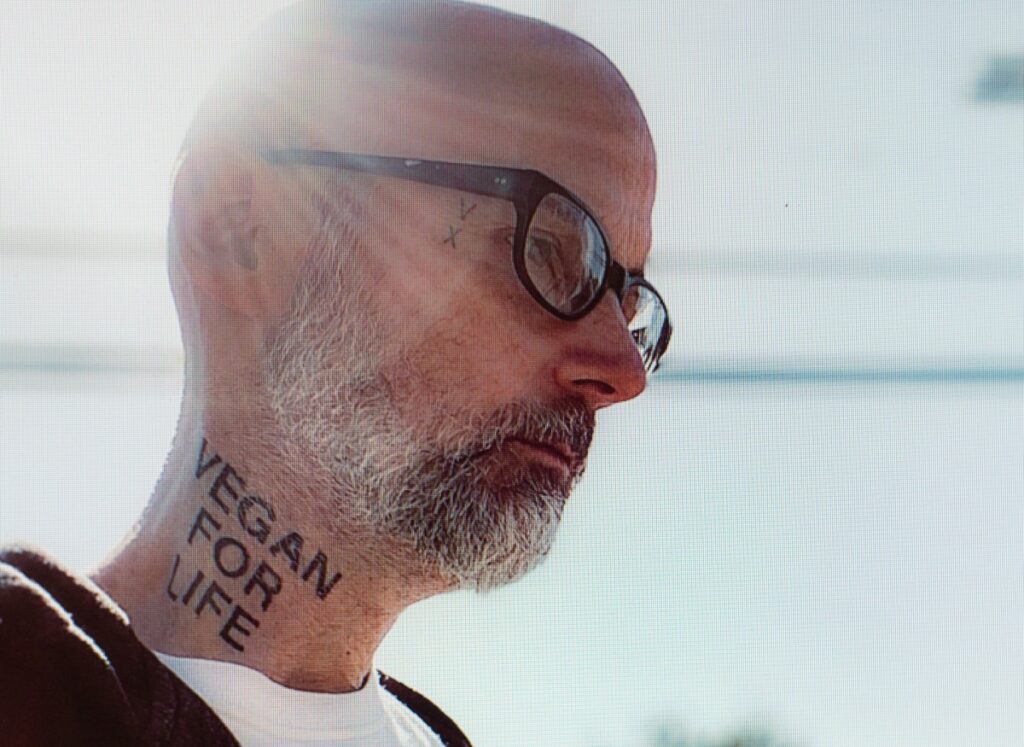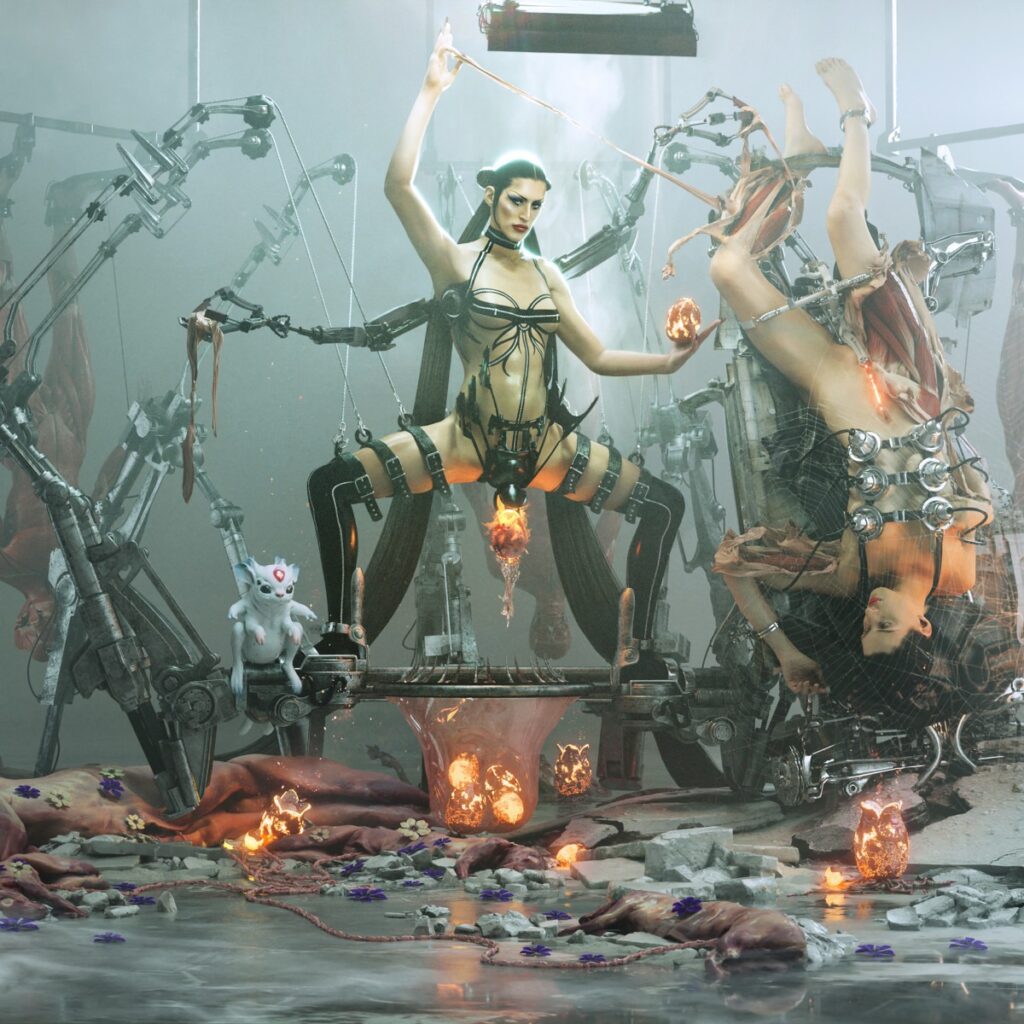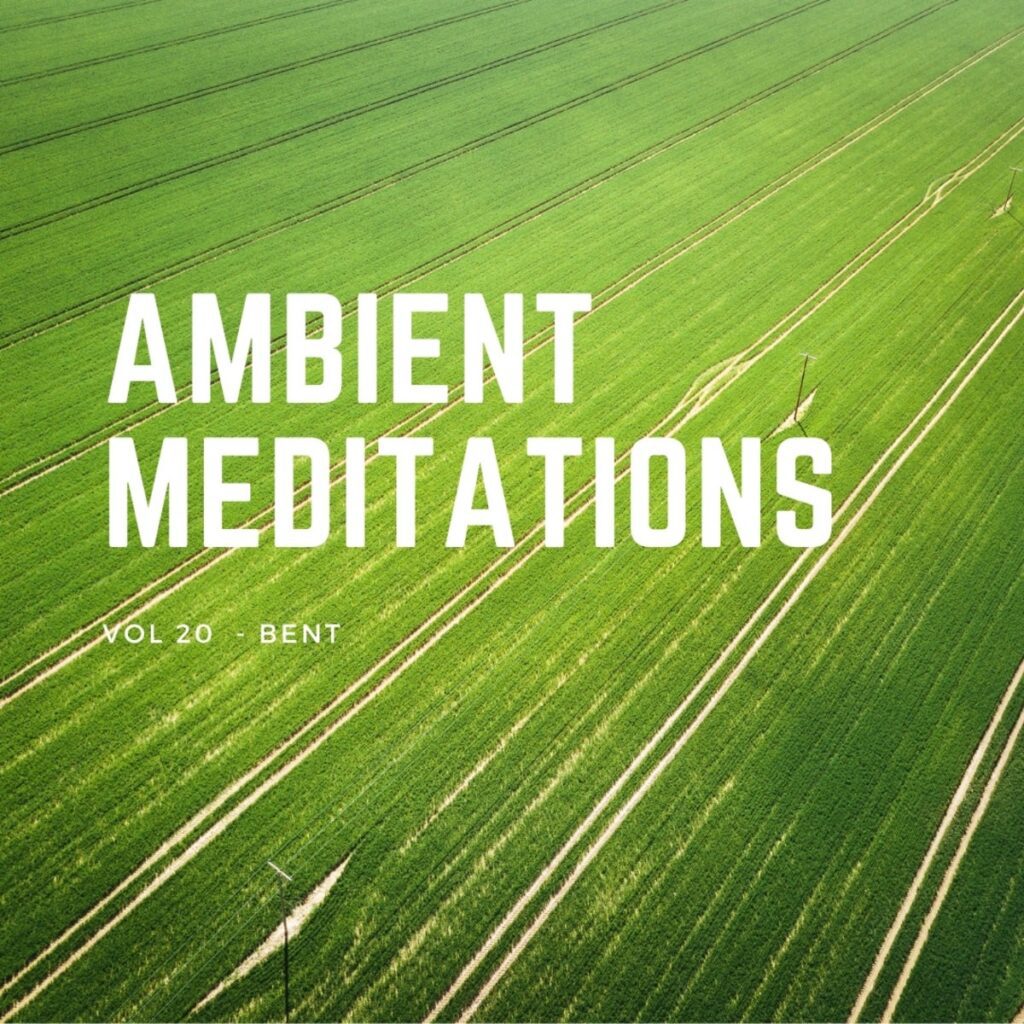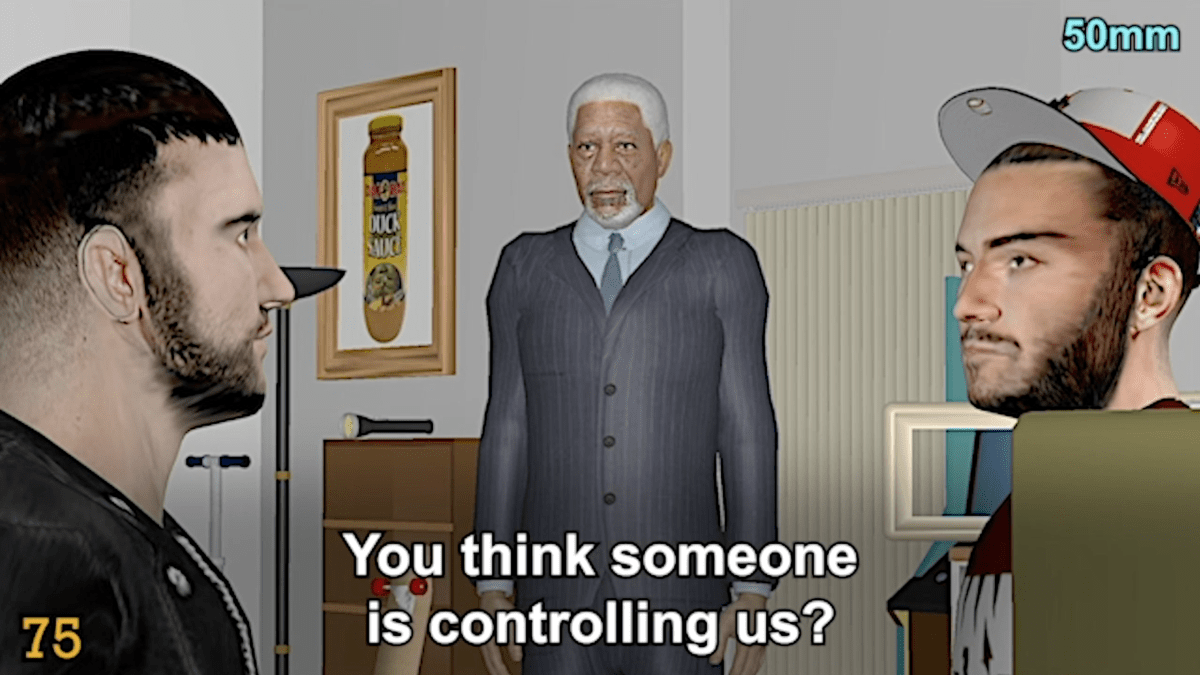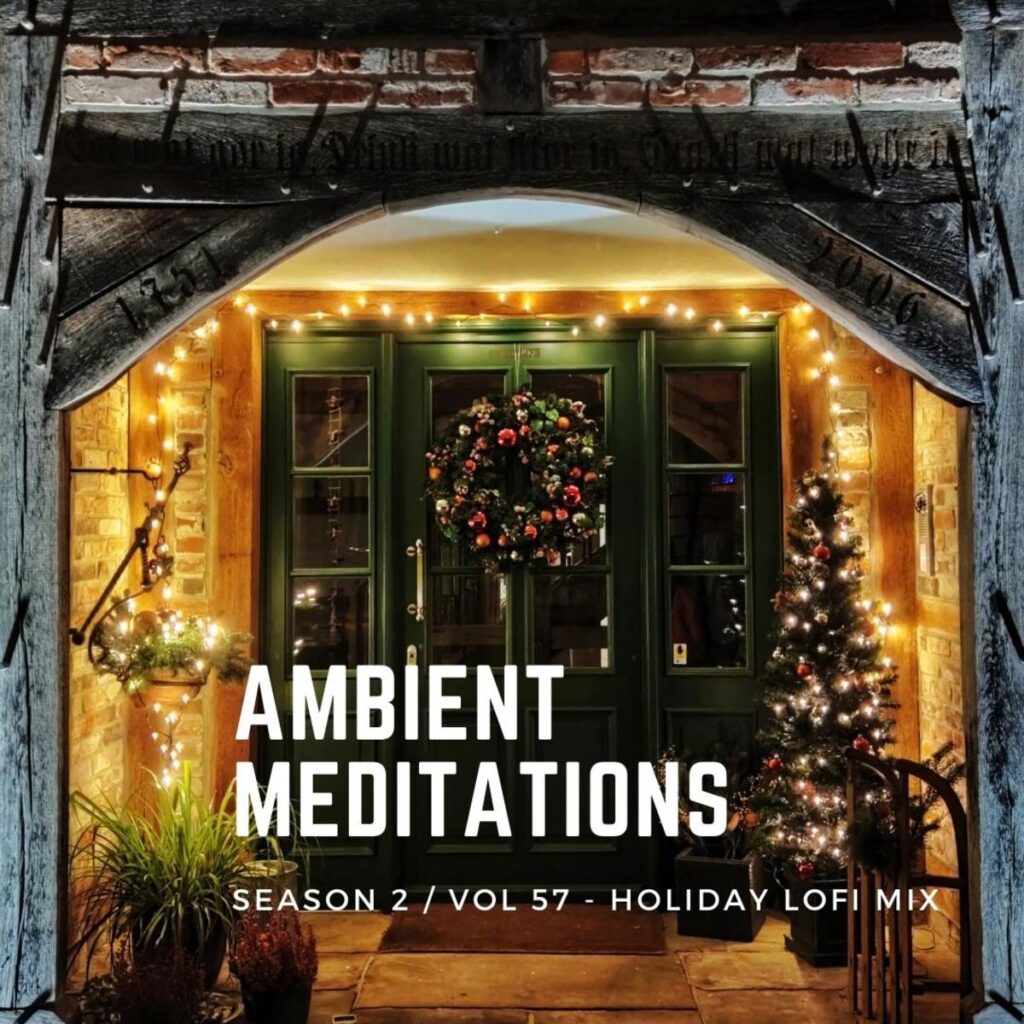Moby may be as well known for his eye-popping tattoos and strong stances on animal rights, immigration and climate change as he is his music these days, but he is still putting out loads of new music. Now he has returned to Mute to release a new album All Visible Objects, which touches on his dancefloor roots, but also nods to the soaring songwriting that have been a part of his music for the past decade.
As his activism has grown in his life, that has also been reflected in his music and his purpose. He sold off a large number of his synths and drum machines in 2018 to raise money for charity. He has donated a large chunk of his musical proceeds to charity and has been a vocal advocate for PETA and being vegan (look at his press photo).
Segments of autobiographies have caught the eye of not just music fans, but also tabloids, finding juicy bits about his supposed relationship with Natalie Portman and his rampant drug and alcohol abuse at his height as a star in the 1990s.
This has all loved alongside a discography that often can seem very difficult to make sense of. There were the indie rock, breakbeats and rave-adjacent sounds from the 90’s into the mid 2000’s, which then slowly started to evolve into less maximalist, very organic compositions that felt less about the party and more about his own internal struggles. Along the way he has been heavily involved with ambient music, putting out ambient records and even mixing albums into ambient formats.
This all leads to a new decade and a new album that is designed for intermittent dancing, but also allows for cerebral at-home listening with quality songwriting.
The album starts with “Morningside,” an uplifting and somewhat hypnotic record, repeating a distant shout and drum line underneath that builds and builds into the piano opening of “My Only Love” and its sweeping strings.
This theme of hypnotic and repetitive vocals carries into “Refuge” that eventually builds to some of the 90’s rave we came to know from Moby. “One Last Time” brings flowing strings and his own soft robotic voice.
We really see the activist side of Moby on “Power Is Taken,” where D.H. Peligro of The Dead Kennedys cries out “we who hate oppression must fight against the oppressors, power is not shared, power is taken” as sirens and frenetic, ominous synths add a sense of urgency to the problem with the current status quo.
The album does get lost in a little cheese though. “Rise Up In Love” could have been a mainstream progressive house track from 2011, but somehow made it to this record. “Too Much Change” is soft, jazzy and blends his own ambient background with a woman yearning for the world to stop changing so much around them. “What are we supposed to feel, what are we supposed to do, there is too much change,” sings Apollo Jane lamenting about how things are changing, though it isn’t clear what the change is or if it goes along with the plot to overthrow those in power. That sort of gentle beauty transitions perfectly into the stirring and haunting “Separation.”
Slow-burning “Tecie” is both hopeful and also has a sense of terror in the background that then leads into the album closer “All Visible Objects.” The title track ends where the album began – with piano as strings and quivering synths add more balance to the song.
Moby finds himself surging around his various influences on this album. It is strongly linked to his love of ambient music and orchestral arrangements, but also finds time to rage against the status quo. There are moments of beauty and moments to dance. It isn’t a traditional dancefloor record, but there has never been anything traditional about Moby’s music.
Moby is donating the proceeds of this album to a slew of charities, which you can see here.
Listen to the album below and grab your own copy in various formats here.


